In the midst of the first strike at a U.S. automaker since 2007 and additional worker furloughs in Canada, it might seem odd to talk about a bright future for General Motors.
However, if the many recent signs of progress come to fruition, things should look a lot more positive over the next 18-24 months.
Indeed, 2021 is shaping up to be a milestone year on GM’s all-electric roadmap, with several key projects set to launch or be unveiled that year. Let’s take a look at those initiatives and what they say about the General’s ambitions for its electric vehicles heading into the next decade.
2021 Chevy Bolt EV is Getting a Refresh
Earlier this week, we looked at the importance of small yet subtle improvements to the 2020 Bolt EV. While the minor upgrades showed that GM is committed to keeping the model relevant in the face of increased competition, the company’s plans for the 2021 Chevy Bolt EV show us the car will continue to be a key vehicle in its EV lineup.
We’d heard the rumors that GM was planning interior enhancements for the Bolt EV, such as rethinking the seats and adding some more recent creature comforts. Now, according to new spy shots from GM Authority, we can tell that the exterior of the car is also in line for a facelift. The Bolt EV’s styling has been another sticking point for some prospective buyers, so it will be intriguing to see how GM rethinks the look.
It’s always hard to tell from brief glimpses of heavily-camouflaged test vehicles what the final version will look like. The cladding does reveal that the front and rear light assemblies will be reimagined, however, and the interior is likely to see redesigned seats, as well as some changes to the infotainment area and new driver-assist technology.
If the Bolt EV designers choose to steal a few styling cues from the new Chevy Blazer, which my Torque News colleague John Goreham tested over the summer, we wouldn’t complain.

The Upcoming BEV3 Platform
While the current Bolt EV – and the rumored electric utility vehicle, the Bolt EUV – will continue to be built on the existing BEV2 design, GM has long hinted at the arrival of its new battery platform, BEV3. It is the basis for the much-larger Cadillac Escalade EV that we looked at last month, and presumably underpins a good number of the 20 new all-electric models GM plans to deliver by 2023.
The many rumors around BEV3 place it firmly in the realm of forward-thinking EV manufacturer. From a source close to GM’s engineering team, we’ve heard that the minimum range for vehicles on the BEV3 platform is expected to be 300 miles. That’s where the industry is aiming as a whole, but it’s just one piece of the puzzle. Perhaps more importantly, that same source claims that “the BEV3 engineering goal is to recharge 200 miles or range in 15 minutes.”
Adherence to that particular metric will be vital. Merely stating a maximum kW rate doesn’t tell the whole story, as battery capacity also influences charge times. 150kW would be an incredible rate on a Chevy Bolt EV with its 60 or 66kWh packs, for example, but a vehicle with a pack two or three times that capacity would see much longer charge times at that specific kW rate.
To convince mainstream buyers that these new electric models are no less convenient than ICE models, we need to stick to miles and minutes. 200 miles in 15 minutes is a great place to start.
Clearly, any upgrade boasting these kinds of capabilities is a signal of intent from GM. If all goes to plan and even large vehicles like the Escalade can achieve those numbers, the company will have an excellent base from which to build more and more compelling electric vehicles.
In that scenario, BEV3 will deliver more than enough to help GM take its EVs to the mainstream and sure up its position in the all-electric market for years to come.
GM EV Pickup Truck in Development
If we take the Cadillac Escalade as an example of GM’s ambition to bring the largest vehicle categories into the EV realm, we quickly arrive at perhaps the most important segment in North America: pickup trucks.
Despite my high hopes for Rivian, I’ve already covered why the R1T will not convince existing truck drivers to go electric.
In short, it’s simply not designed for the kind of work that many truck owners say they need. Nor has Rivian positioned it as such, as the brand is focused on outdoor activities and adventure. Nonetheless, what we know about the R1T means we need to look to the likes of Tesla, Ford, and GM as the other automakers closest to market with pickup trucks that might do the heavy lifting.
My Torque News colleague Eric Way has already written an excellent piece on what a full-size GM electric truck could look like. As his article explains, a heavy-duty truck is not on the cards during the company’s first foray into BEV trucks.
An all-electric version of the Chevy Silverado is his pick for that honor, which would at least move the company into the segment and give GM a product comparable to Rivian and Tesla by late 2021/early 2022. It would be a valuable addition to the company’s electric lineup and further proof that GM intends to keep pace with the gradual transition to EVs.
Contrary to popular belief, General Motors clearly has a strategic plan for electric vehicles that not only unveil many new models in key categories over the next couple of years, but which will reshape the automaker at its core.
Those changes may seem unpalatable in this difficult time of transition, but the end result is infinitely preferable to the slow descent into obsolescence that some legacy automakers will inevitably face over the next decade.
Do you think GM's impending moves in the EV market will be enough to keep pace with Tesla and stay ahead of the competition from legacy automakers? Let us know in the comments.
Steve Birkett is an electric vehicle advocate at Plug & Play EV. You can follow him on Twitter at @plugandplayev, Instagram and YouTube at Plug & Play EV channel to send him EV news tips.
Set Torque News as Preferred Source on Google


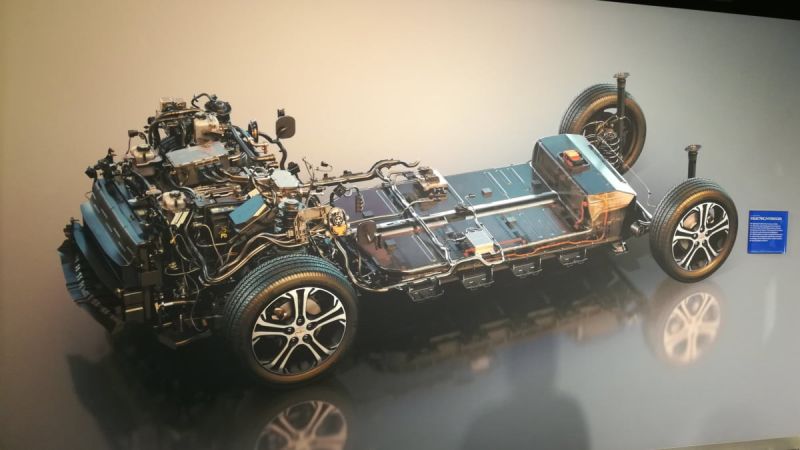




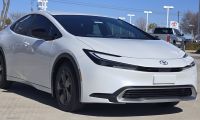
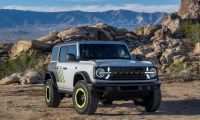
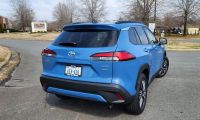
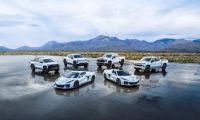
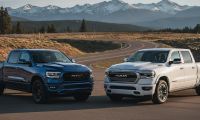
Comments
Some Bolt niggles: Rear
Permalink
Some Bolt niggles: Rear camera grainy, subpar. Front seats narrow, Miata size. No rear automatic braking. No HD radio. Way too many screens and contols. There should be a KISS button for technophobes.
Likes: Extremely quiet, quick, and competent . Sizable rear seat, flat floor. With mild Regen on, 300 miles in city driving. Wife tops off one night a week on 110 volts power. Short lengt and folding seats make for easy utility. Good visibility. Compare to new Mazda3 hatch!
One strong point for GM is
Permalink
One strong point for GM is that they have been selling the Bolt BEV for a few years now, and neither Ford nor FCA/Chrysler sell a comparable, long range, affordable BEV. In fact neither does Toyota, Honda, or Nissan. Tesla's Model 3 success, along Hyundai/Kia's 3 new models show that there is a decent market for these electric vehicles, so it is smart for GM to update the Bolt and come out with their EUV model ASAP. We have heard EV rumblings of Ford's Mach-E, and VW's ID.4, due next year along with Tesla's Model Y. Regarding EV pickups, neither Rivian, nor Tesla need to build the perfect workhorse pickup, that is cheap and can tow 50,000 lbs, while climbing up rocks. There were over 2 million pickups sold in the U.S. last year, with an average price of 48K, and many were sold to one person commuters and other buyers who would like to own an EV pickup just like the ones that will soon be built by those EV companies. Rivian just got an order for 100,000 Rivian EV vans, which I had not even heard of previously. Which I am sure got the attention of Ford, GM, Chrysler, as well as Daimler, and Nissan who offer competing gas/diesel vans. It is quite likely that GM's upcoming BEV3 platform will work fine with their commercial vans to make them EVs along with their upcoming EV pickups. I am hoping to see more Rivian and Tesla EV big corporate contract deals to accelerate their EV van and pickup business so that the big automakers accelerate their EV timetable.
I have owned the 2019 Chevy
Permalink
I have owned the 2019 Chevy Bolt Premier ( fully loaded ) for 5 months now. I am an early adapter moving from the Toyota Prius ( 2012 ) to this vehicle offered by GM. I am somewhat impressed as it took a LOT to move me from my Prius to an all electric vehicle.
I was looking at Tesla's model 3 but the price out the door vs mt Bolt was not even close. Tesla fans have a very good vehicle and the infrastructure ( Tesla Supercharging ) to make their product a lot more convenient to use overall. GM really needs to offer better fast charging options, as in at every dealership nationwide if they truly want common people to consider trying an EV.
I spent a LOT to upgrade my homes electrical service to have level 2 charging at home. To be honest, without level 2 home charging, you should not even consider owning any EV or you will be sorry... Trust me, I know. Trying to use level 1 charging is like using an eyedropper to fill a 1,000 gallon fuel tank for a proper analogy.
I personally fell as the EV market really needs to focus on not only distance the battery pack can provide in range, but speed of charging ( refueling time ) is even more important to most vehicle owners. It takes 5-6 hours on my homes level 2 charger to properly regain meaningful range for 4-5 days worth of use for my needs. I only travel ( on average ) 43 miles per day Monday to Friday. That is only 215 miles of its 238 miles of range.
Most of my miles are freeway miles, which is the least efficient way to use any EV. They do much better in stop and go city driving ( via regenerative braking ) so I give up all possible regenerative braking gains every freeway trip to and from work. If I take surface streets, I sacrifice time for that regenerative braking advantage.
My employer does not have, or seems to EVER want to have any EV charging stations ( Valley Metro aka R.P.T.A. ) for their employees; and many employers will not cover the costs to build charging stations for their employees. That is kind of a bummer, but understandable as that would be a "perk" that some employers are offering ( like Boeing up the block from us offers ). I think as EV's become more mainstream employers will rethink offering charging stations at work.
I personally feel that once the infrastructure is built out to accommodate all EV's that the sales of EV's see meaningful gains. I think having a range per charge of at least 300-500 is needed ( 500 mile for off road vehicles, 300 for regular use vehicles ) along with super fast DC charging to recharge a vehicle in under 15 minutes time. I also think DC fast charging might someday replace level 2 home charging, but not any time soon...
One really annoying issue my 2019 Chevy Bolt has is no adaptive cruise control. GM really needs to get on that... Also, all EV's MUST HAVE DC FAST CHARGING as a standard item included, not as an add on if you want us to buy these EV's at all. Not having a DC fast charging option installed is like refueling using an eyedropper, so very, very SLOW!!! I hope all EV brands are paying attention to that statement.
A word of warning for all those who want self driving, it is not safe and is reckless to assume it is completely safe to use. I am all for adding us to avoid collisions and mishaps. I am not for relying 100% on a computer to do all the driving for me. There are just too many variables involved in driving. I should know, I am a city bus operator of 19 years now. Assist me yes, but take total control, no thank you...
Commercial use of EV's as fleet vehicles is coming soon. All electric trucks and vans and buses are being developed and tested now. Overall cost of ownership and use is coming down as the tech improves. The big players are investing billions to make the changeover from current ICE vehicles ( internal combustion engine ) to fully electric vehicles possible and are getting major advantages in doing so.
I see GM making the necessary changes to become relevant once again in a BIG WAY. Tesla showed the world that we, the human race, is ready for the switch from fossil fuels to all electric. We need the infrastructure, quick DC fast charging times and meaningful range ( 300-500 miles per charge pending applications ). We are getting closer and soon will be phasing out the ICE vehicles of today with EV's of tomorrow.
Nothing is done overnight. It takes a real commitment of a lot of big players to make real change happen. It also takes demand to push for more supply. Currently, China and Europe are far ahead of us here in the US for EV adoption into any meaningful scale. We may be late to the game, but we have American determination on our side...
Dennis, great article and I
Permalink
In reply to I have owned the 2019 Chevy by Dennis Hassing (not verified)
Dennis, great article and I love our 2019 Bolt Premier. Wife has a 2016 Volt. If the 2021 Bolt has an interior refresh and the Must Needed ACC cruise control, then goodbye Volt. Have you heard anything about when they’re going to start producing the 2021’s. Will it be after the July shutdown. Thanks for all of your info.
Paul
Dear Dennis Hassing, We've
Permalink
In reply to I have owned the 2019 Chevy by Dennis Hassing (not verified)
Dear Dennis Hassing, We've owned our Bolt EV since Sept. 2017. We drive an average of 60 miles a day and only use the 120v charger that came with the car. We simple plug it in every time we come home and it's ready to go the next morning fully charged, no problem. In 2019 we did get a level 2 charger with our solar array system because we may need to charge the car faster in some circumstances. Since then we have not needed it. We have taken 3 longer vacation trips using the optional DC Fast Charging which was a definite must have for long trips. So, in our opinion the need for a level 2 charger in the garage should be based on one's daily needs, but it is not a must have. So far, there has been no degradation in range charging every day.